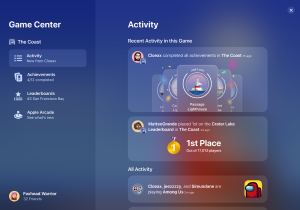A lot of people dream of building a career in journalism and publishing. Getting there requires a lot of hard work and some measure of luck, but there’s a lot you can do to improve your chances by using your head and understanding the way the industry works. If you’re just starting out, what are the essential things you need to know, how can you get yourself noticed, and how can you go beyond attracting readers to the point where you’re actually making a living?
The changing media landscape
It used to be that the way into media was a good degree or professional industry qualification followed by an internship in a newspaper office – a couple of years spent doing all the tedious research jobs, undertaking supervised stings, interviewing bereaved families, and making the coffee. These days, there are few such openings around, and the bulk of the industry has shifted online. Although some publications still care about qualifications, it’s easy to find ones that don’t. What really matters when you’re starting out is to have a nose for a story and the intelligence and gumption to follow it up. Snappy writing, meaty quotes, and a little bit of controversy (less politely referred to as “clickbait”) can now get you further than a sophisticated vocabulary and political insight. It’s a tough environment in which to stand out, but journalism as a profession has always been tough, and what matters most is being adaptable.
Job opportunities in online journalism
There are several routes you can take to get into online journalism, including the following:
- This is a good way to get started and to build up your skills, but there are a lot of people doing it. To get noticed, you’ll need to have a distinctive angle, and you’ll need to work hard to promote your blog. Don’t expect to earn much, if anything.
- Joining an established blog. There are many of these out there. Approach those covering subjects that interest you. The good ones will expect you to have some relevant expertise. If they can’t pay you, they should actively work to build your skills. Working for “exposure” is a mug’s game.
- Most big newspapers and magazines employ comment moderators, and this can be a good way to get a foot in the door and make contacts. You won’t be doing much actual writing, but you will get paid.
- Niche writing. Niche magazines are always looking for capable writers, so if you have an obscure favorite subject, look out for opportunities. Then, if a story breaks that makes it nationally relevant, use your magazine experience to pitch to the nationals. Expect pay to be sporadic at first.
Developing your web skills
Editors will always be happier about publishing your work if they don’t have to do much with it. This means you should be able to spell and follow house style. It also means that if you can code (basic HTML and CSS), you’ll be much more appealing to them. Being able to source images for your work (and understanding related copyright laws) is also a good selling point.
School publications
If your school has its own magazine or newspaper, getting published there can be a great way to break through, as Harvard Independent writer Eloise Lynton discovered. Studying History of Art and Architecture, Lynton has the advantage of a specialist subject that automatically gives her a strong angle on certain types of story – much more useful to a journalist than being able to do a little bit of everything.
Although the rise of new media has left many young journalists struggling to get paid, new financial models are emerging, and the public appetite for news and analysis has never been greater. There are lots of opportunities out there for those committed to pursuing them.


